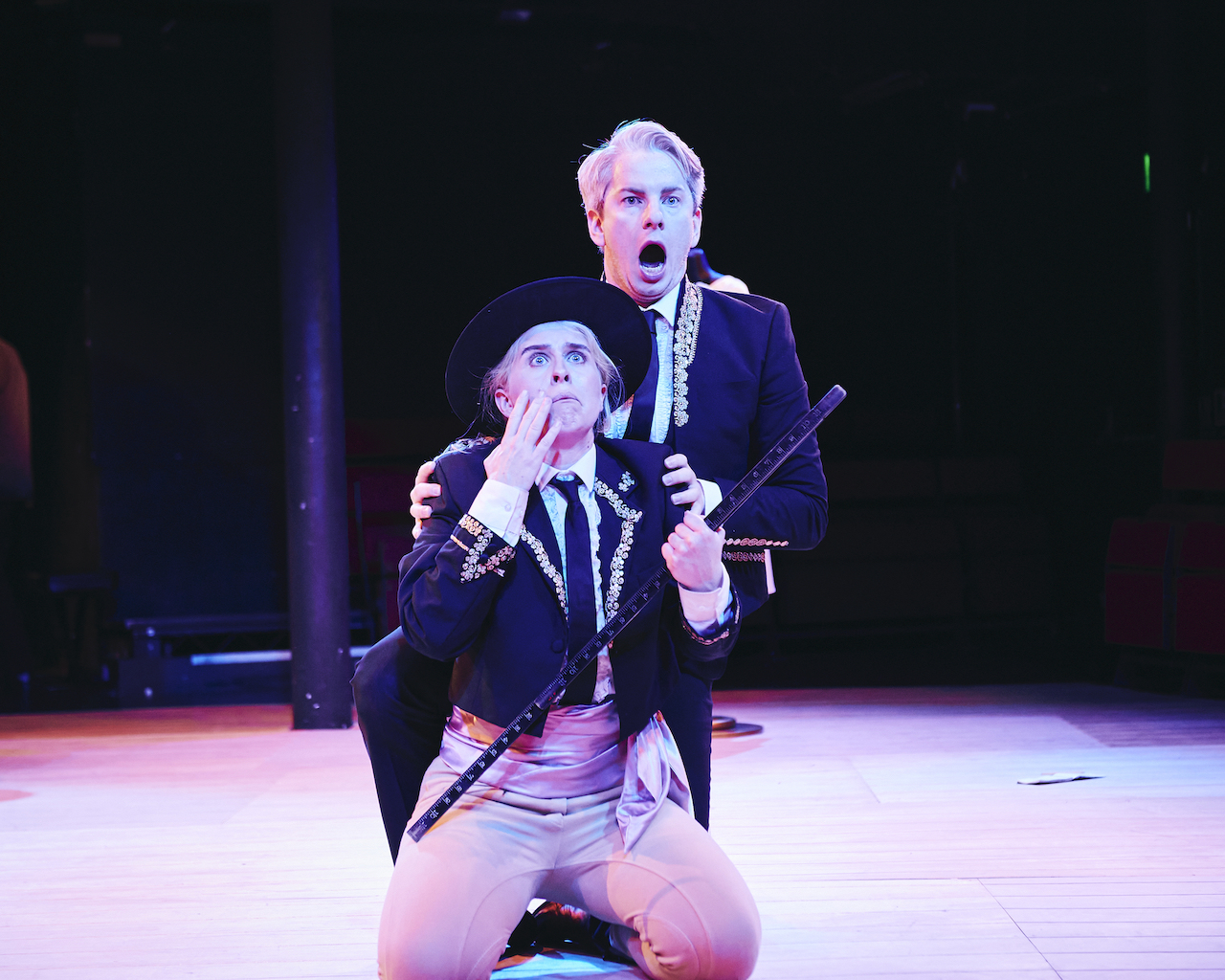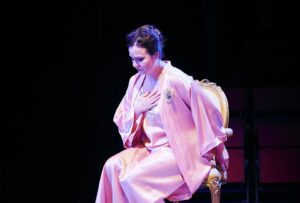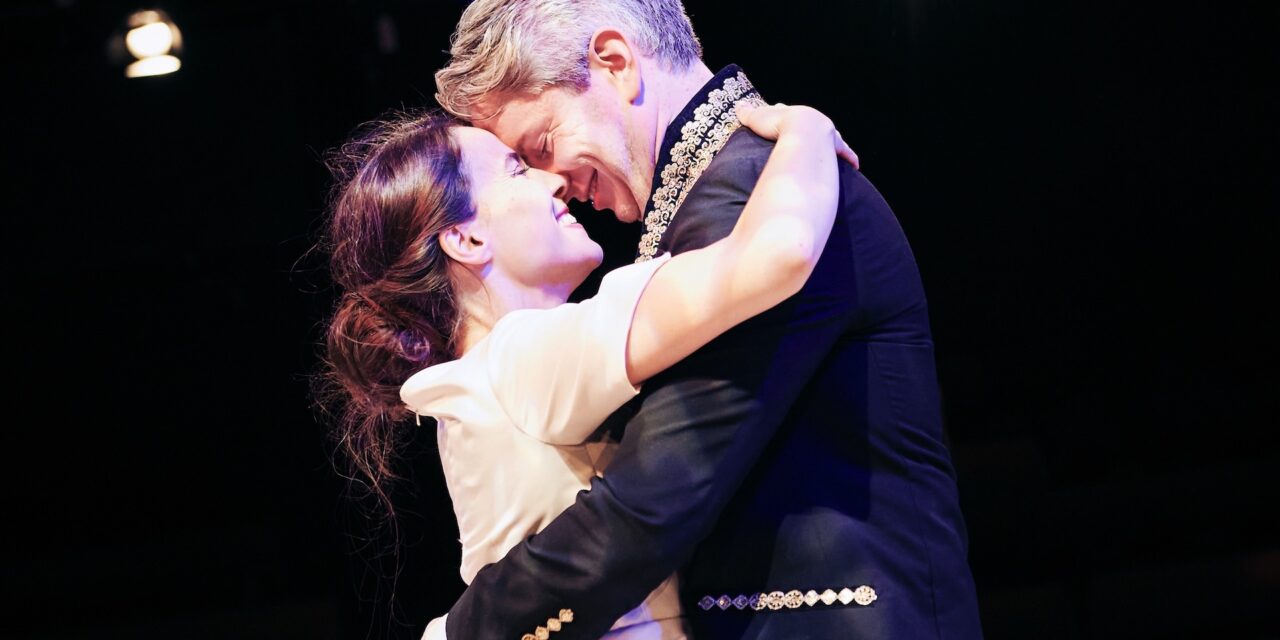
2 – 12 October
Opera makes a very welcome return to Tobacco Factory Theatres with Opera Project’s The Marriage Of Figaro. This joyous must-see production offers comedy in abundance, but there are also passages of considerable emotional depth, touching on themes of infidelity and forgiveness.
From the first notes of the overture it is clear that musically all will be well. Conductor Jonathan Lyness is responsible for the reduced orchestration that enables his ten musicians to deliver a version of Mozart’s score that retains the varied colour and spirited inventiveness of the original. So too does Amanda Holden’s translation of Da Ponte’s libretto, which is delivered in entirely idiomatic English, often of a robust kind. Nothing dates so badly as jokes, but here the humour is daisy-fresh.
Director Richard Studer has choreographed this production with a boisterous dynamism. That knockabout quality is best seen in Anna-Luise Wagner’s exuberant, bouncy portrayal of Cherubino. This very talented German soprano takes full ownership of the famous breeches role, depicting Cherubino as a cheekily flirtatious lad on hormonal overdrive, reckless one moment and scared to death the next. The scene where Cherubino is dressed up as a girl is a comic delight.
The Marriage Of Figaro is an opera where underlings get the better of their masters and women get the better of men; both those ideas are embodied in the character of Susanna, a servant with a mind of her own. Spanish soprano Lorena Paz Nieto is a petite, feisty Susanna, ever resourceful in her quest to marry Figaro, despite his possible waywardness. Partnering her, baritone Malachy Frame is an engaging Figaro, lighter in tone than some who have embodied this role, but utterly convincing as a wily insubordinate with little respect for his supposed betters.
The serious core of this multi-layered masterpiece is found in the character of the Countess, sung by Galina Averina, who in two arias of poignant beauty conveys both her dignity and her sense of betrayal and loss.

Her unfaithful husband can be portrayed as a lecherous, entitled monster, but in a skilfully balanced performance Philip Smith endows him with just enough vulnerable humanity to make his final plea for forgiveness credible. All the other roles are performed with equal conviction, with Felicity Buckland’s bustling Marcellina particularly memorable. The scene where Figaro discovers that Marcellina is his long-lost mother can be sentimental, but here is played entirely for laughs, and gets them.
A minor caveat: A performance in the round, as here, brings the benefit of a thrilling immediacy, the sense of direct involvement with the action. But the disadvantage is that at any one time some members of the cast have their backs to sections of the audience, and become a little less audible. The detailed synopsis in the programme notes helps to fill in the gaps.
At a time when discourse regarding sexual politics is frequently characterised by intolerance and intransigence, this opera, though well over two hundred years old, may still have something to tell us about the frailties of human nature, and the need for compassionate understanding. The penultimate scene of union and reconciliation in this splendid production is truly moving, and the final moments of celebration send one back out into the real world with a warm inner glow.
★★★★★ Mike Whitton, 5 October 2024
Photo credit: Mark Dawson


